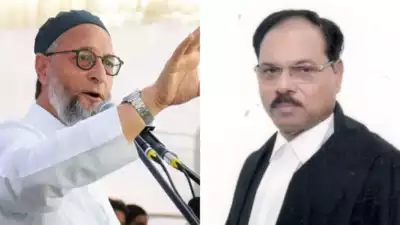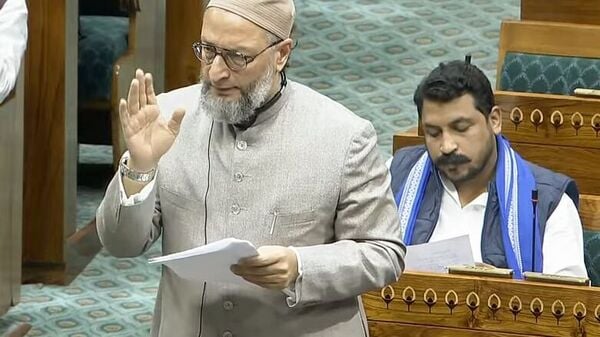AIMIM chief Asaduddin Owaisi has sparked a debate by invoking Dr. B.R. Ambedkar in response to controversial remarks made by a High Court judge. The judge’s statement, perceived by some as endorsing a monarch-like position for certain figures, drew sharp criticism from Owaisi, who emphasized Ambedkar’s rejection of divine rights in governance.

Source:- bbc news
Owaisi reminded the public of Ambedkar’s foundational ideals, which oppose the notion of any individual or institution wielding unchecked authority. He stated that in a democratic system, no one, including judges, enjoys unchallengeable power or divinely ordained rights, urging adherence to the Constitution as the ultimate framework for justice and equality.
Source:- news 18
The comments come amid growing concerns over judicial overreach and perceived deviations from constitutional principles. Owaisi’s remarks aim to underline the importance of judicial accountability and the need for interpretations of law to align with democratic values and secular ideals.
Quoting Ambedkar, Owaisi emphasized that the essence of democracy lies in collective governance, where no single entity, whether political or judicial, holds supreme power. His critique also reflects a broader concern about ensuring the judiciary remains independent yet accountable within the constitutional framework.
Owaisi’s invocation of Ambedkar highlights the continuing relevance of the Constitution’s architect in contemporary debates on governance and power dynamics. It serves as a reminder of the principles of equality and justice that underpin India’s democracy, encouraging all stakeholders to uphold these values.
The debate adds to the ongoing discourse on the role of the judiciary and the importance of balancing authority with constitutional responsibility in a vibrant democracy.
Share your views in the comments

